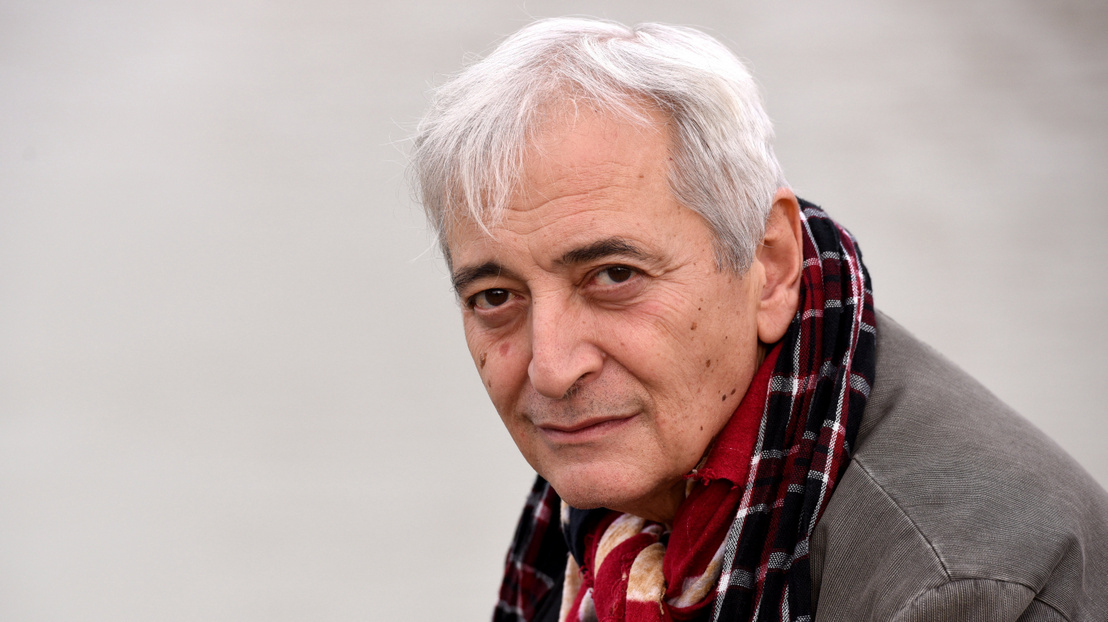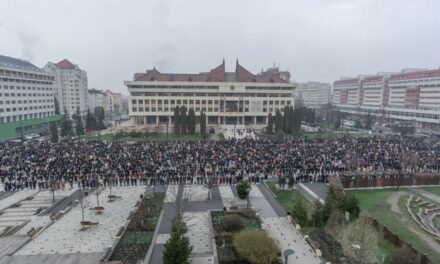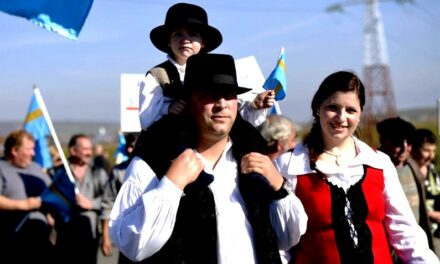It is very difficult to say anything, the news of the death of Ferenc András Kovács overwhelmed the Hungarian cultural public life. The Kossuth Prize-winning poet died at the age of 64.
After that, not only the most famous figures of Hungarian literary life, but also friends, acquaintances and people who love literature expressed their deep shock. Facebook, for example, was overwhelmed by countless Ferenc András Kovács poems and heartbreaking cries to heaven.
My friend, Ferenc András Kovács, has died! No, you can't.
We talked on the phone last night
Sándor Mészáros, head of Kalligram Publishing House, wrote in his Facebook post. The sad news was announced by the Látó literary magazine on Facebook.
I thought there was no such sentence
He was not the only one who was struck by the fact that the Hungarian poet legend died on December 30, 2023, at the age of 64. Community portals have since been filled with Ferenc András Kovács's poems, photos, and posts about him.
Literary life was his place of residence, idle chatter was his genre. What was there was not here, and vice versa. He liked loose shirts, loose poems, in conversation he was like a thistle that never pricked anyone. It consumed his strong physique. He lived in constant love and constant heartache.
Kossuth Prize-winning writer György Spiró wrote this, among other things, in his farewell in the columns of Litera. He also wrote that they had known each other for about a quarter of a century in Marosvásárhely, and that he loved his poems even then. "It was clear that he was one of the greatest Hungarian talents of the era. In point AG or elsewhere, he reflected that he doesn't write, he doesn't have time, he doesn't feel like it, editing takes up his time. Such and such divorces took their toll, but the poems were still created sooner or later until the last few years.
He fell passionately in love and suffered an emotional crisis, selflessly, though egocentrically. It must not have been easy being a member of his family.
György Spiro concluded his obituary as follows:
"Andriska, Andriska, you've left us in the biggest mess."
Kossuth Prize-winning poet Lajos Parti Nagy bid farewell to Ferenc András Kovács in a poem, which was also published on the Litera website. In the poem, he said:
He died KAF.
I thought there was no such word,
at least I'll never do that,
even if I don't get it now.
Writer and playwright András Visky posted a poem by Ferenc András Kovács on Facebook, which the author wrote for him. He wrote this for the post:
"This poem is farewell, dark ink, silent ink. Dear KAF's attention, love and yes, laughter from afar. He was poetry itself for me, the utterance as proof of God. He walked on water before us, always before us, up and down the sea of language."
Writer György Dragomán also reacted to the news of the death of the Kossuth Prize-winning poet. In his Facebook post, he wrote: "My father was overjoyed, he was so happy with the poems of René Sándor Lázáry, a forgotten poet from Marosvásárhely, and what a fantastic world talent, he said, he read me the poems from Holmi, we squealed, and then we talked about Domokos Szilágyi. Later, when he found out that Lázáry was actually KAF, he laughed heartily, of course, who else would be capable of such a brilliant move, he said.
René Sándor Lázáry, Jack Cole, Caius Licinius Calvus, Alexey Pavlovich Astrov, the finder of the lost poems of Cavafys, all of these were Ferenc András Kovács, oh my god, why should this be written in the past tense, we haven't had a poet with such encyclopedic talent since Weöres, I was always confused by him , when we met, somehow I could never tell him how much he meant to my father and how grateful I am to him for that.
György Dragomán cannot understand that Ferenc András Kovács had to die at the age of sixty-four,
"the brain tries to rationalize, to calculate, he was two years older than my father, two years younger than Esterházy when he died, the numbers mean nothing, let's leave it, let's leave it."
You were a fairy poet, a fairy person
A large army of mourners accompanied him on his last journey, where retired Reformed pastor József Ötvös and his partner, poet Béla Markó, the founding editor-in-chief of Látó, said goodbye to him, read MTI's coverage.
"He proved that everything that hurts can be put into poetry. In his poetry, the Greek or Roman classics are together with the best of the Hungarian globe, there is no time or space boundary between poet and poet, man and man. In our increasingly divided world, we need this empathy for other creators and people.
It was fairy
said Béla Markó, referring to KAF's shape-shifting ability,
"after all, as a Transylvanian, you have to be able to wear different costumes, while still being yourself. Yes, you were a fairy poet, a fairy man, András, in every sense of the word. Sometimes it's clear, sometimes it's cloudy, like Transylvania, but it's only outwardly changeable".
Poetry must be loved
He started publishing poems from 1977 and children's poems from 1981. He primarily translated from Romanian and French, and also wrote essays and literary studies. His poems have been translated into English, Bulgarian, Czech, Estonian, French, Croatian, Polish, German, Italian, Russian, Romanian, Swedish and Slovenian, reads the website of the Digital Literary Academy , where all his works can be found.
Since the nineties, he has been one of the most analyzed and most influential contemporary Hungarian poets.
The key concepts of the KAF interpretive tradition - loss of identity, cultural memory, intertextuality, "role poetry" - question the uncertainty and then the abolition of the traditional authorial position, and ultimately the inherent linguistic, intertextual way of being, the literaryness of the literary text.
Ferenc András Kovács previously shared his thoughts on poetry in the daily video of Maszol's Hungarian poetry.
Poetry is what we live by. The poem is like visiting a huge museum or exhibition. Like a good concert. And it's similar to everything. Sometimes it doesn't even resemble the poem. Poetry is linguistic fantasy, linguistic empathy. You don't want poetry. Poetry must be loved.
Ferenc András Kovács was bid farewell to his colleagues, friends and admirers on Thursday, January 4, 2024. The Kossuth Prize-winning Hungarian poet from Transylvania was escorted to his last journey at the Reformed cemetery in Marosvásárhely.
Featured image: Ferenc András Kovács on October 12, 2022. Photo: Gyula Czimbal / MTI












